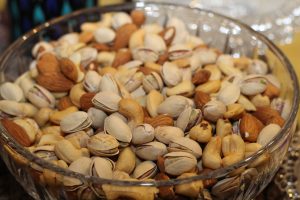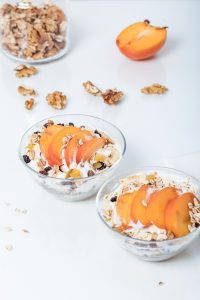Dietary supplements are a topic of great public interest. Whether you are in a store, using the Internet, or talking to people you know, you may hear claims about their health benefits. How do you find out whether “what’s in the bottle” is safe to take and whether science has proven that the product does what it claims? However, many adults and children in the US take one or more vitamins or other dietary supplements. Dietary supplements come in a variety of forms, including tablets, capsules, gummies, and powders, as well as drinks and energy bars. As the Americans always struggle to seek some new strategies to achieve good health, the supplementary industry offers too many products to fulfill the desire. Yet, dietary supplements are popular in the U.S and U.K, and many other countries and their use have been increasing rapidly.
 In 2010, Americans spent $28.1 bn on dietary supplements.
In 2010, Americans spent $28.1 bn on dietary supplements.
Of the most popular supplements in the U.S are multivitamin-multimineral, botanicals, amino acids, and individual vitamins and minerals including vitamin C, E, B-6, B12, Magnesium, and Zinc.
In 1994, the Dietary Supplements Health and Education Act became law and dramatically increased the number and type of products that could be legally sold as dietary supplements in the U.S.
Definition of dietary supplement:
It is a product taken orally that contains one or more ingredients (such as vitamins or amino acids) that are intended to supplement one’s diet and are not considered food.
Its meaning varies from individual to individual, what college students considered to have beneficial effects on their health (minerals, vitamins, fish oil, amino acids, cereals) with the exception of good consumed daily (e.g. vegetables, milk, fruits, and tofu).
Multivitamin use among college students
Multivitamins are used as a supplement to a diet that does not meet daily recommendations- to fill the gaps. However, everyone cannot maintain a perfect diet all at once, but multivitamins are a way to compensate. But people on special diets, like vegans and vegetarians, need to use supplements to get enough B12 related to anemia deficiencies and other important MVI’s. or people who live in the Northern environment might supplement with Vitamin D.

The U.S Center for Disease Control and Prevention estimates that 40% of U.S adults use supplements regularly, but does not provide any information on the use by college-based consumers
Types of dietary supplements used
Vitamins/Minerals:
- Multivitamins and minerals
- Multi-vitamins
- Muti-minerals
- Individual vitamin
- Individual mineral
- Any type
Non-vitamin, Non-mineral:
- Weight loss
- Protein/ Amino acids
- Blueberry/ Lutein
- Fish oil/ n-3 PUFA
- Lactic bacterium

Results of using dietary supplements among students
Approximately 66% of the college students reported using DS. Approximately 25% of the student’s used spot drinks, and 11% and 4% respectively, reported using sports bar or gel or meal replacements.
The most popular DS- dietary supplement survey among students was multivitamin or multimineral supplements 42%, individual vitamins 29%, protein or amino acids 17%, herbal supplements 9%, and combination products 6%.
The most popular information source on DS among men was the internet and women among their families. Males percentage was probably higher than females to get their DS.
Click to view more on how to lose weight fast
College can be stressful – in case of nutrition and health, But why?
“College students commonly experience stress because of increased responsibilities, a lack of good time management, changes in eating and sleeping habits, and not taking enough breaks for self-care. Transitioning to college is also a source of stress for most first years.”
“College students now report being more stressed-out than ever before. 55% of students, nationally, claimed their biggest stressor to be academic in nature. 6 in 10 college students report having felt so stressed they couldn’t get their work done on one or more occasions.”

How should they deal with stress?
Importantly, avoid high-fat, high-sugar foods, and go easy on the caffeine. This is one of the best things you can do to reduce stress. Also, exercise produces endorphins, the feel-good chemicals that act as natural painkillers, and it also improves sleep, which in turn reduces stress.
Try walking, jogging, or yoga.
In addition, Research has shown that students are able to learn better when they’re well-nourished and eating healthy meals has been linked to higher grades, better memory and alertness, and faster information processing.
Students used supplements to promote general health (73%), provide more energy (29%), increase muscle strength (20%), and enhance performance (19%).
Nevertheless, college students appear more likely to use DS – dietary supplements than the general population and many use multiple types of supplements weekly. Males also use this for muscle building, while females use this for beauty supplements and weight loss. Most of the students obtain information about DS from the internet, or from dietary stores. Concludingly, the prevalence of DS use increase increased with grades among college students. Some of them experience advertise effects. Education may be important to prevail in adverse effects resulting from supplements use in college.
Deviation from DS and introduction of healthy snacks to them
Snacks are ESSENTIAL and NECESSARY for any college student. This is because you are always on the go, moving from place to place, and you want to make sure you have something healthy on hand to avoid sugary or processed foods as the day goes on.
Morning munchies
- Nuts
- High fiber cereals
- Oatmeal
- Granola bars
 Portables proteins
Portables proteins
- Nut butter
- Jerky
- Chickpeas
Savory snacks
- Rice cakes
- Popcorn
- Single serving nuts
- Roasted seaweed

https://www.ncbi.nlm.nih.gov/pmc/articles/PMC5707722/

